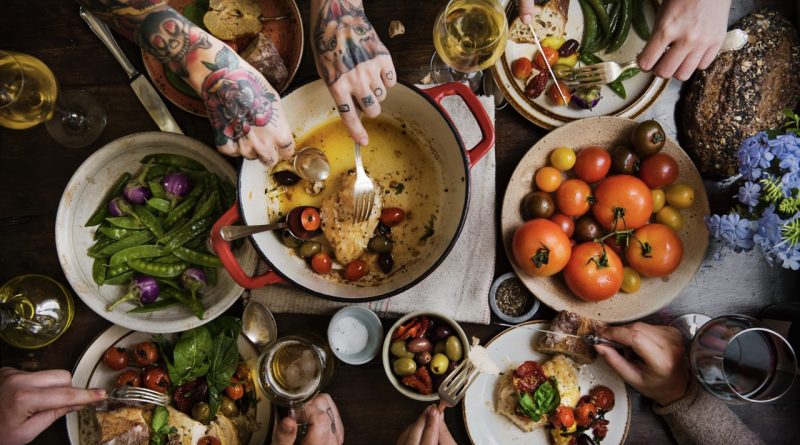How to Cook Meat Without Drying It Out: Tips and Techniques
Cooking meat to perfection is a culinary challenge that many home cooks and professional chefs alike strive to master. One of the primary concerns when cooking meat is maintaining its moisture and flavor. When cooked improperly, meat can easily become dry and tough, leading to an unappetizing experience. This article delves into the science of moisture retention in meat and offers practical tips and techniques to ensure that your meat dishes are succulent and full of flavor.
Understanding the Science of Moisture Retention in Meat
Meat consists largely of water, and understanding how this moisture is retained during cooking is crucial. When meat is exposed to heat, proteins undergo a series of changes that can either retain or expel moisture. The method of cooking and the temperature used directly influence how much moisture is retained in the final dish. For example, cooking meat at too high a temperature can cause the proteins to coagulate rapidly, forcing moisture out and resulting in a dry texture.
Additionally, the cut of meat plays an essential role in moisture retention. Fatty cuts, such as ribeye or duck, contain more intramuscular fat, which acts as a natural barrier against moisture loss. Lean cuts, like chicken breast or pork loin, are more prone to drying out if not handled correctly. Understanding these differences can guide you in choosing the right cut of meat for your cooking method, ensuring a juicy outcome.
Lastly, the importance of connective tissue and collagen in meat cannot be overlooked. Slow-cooking methods help break down collagen, transforming it into gelatin, which contributes to a richer mouthfeel and enhances moisture retention. Learning about these scientific principles provides a solid foundation for making informed cooking decisions that keep your meat juicy and flavorful.
Essential Preparation Techniques to Enhance Flavor and Juiciness
Before cooking, proper preparation can significantly impact the moisture content of meat. One effective technique is brining, which involves soaking meat in a saltwater solution. This process helps the meat absorb water and salt, enhancing its flavor and juiciness. Brining can be particularly beneficial for lean meats, as it helps prevent them from drying out during cooking.
Marinating is another excellent preparation method that not only adds flavor but also helps tenderize the meat. Using acidic ingredients like vinegar or citrus juice in your marinade can break down proteins, resulting in a more tender texture. Additionally, including oil in the marinade can help create a barrier, sealing in moisture while cooking. Always remember to marinate in the refrigerator and for the appropriate time to avoid food safety issues.
Finally, allowing meat to come to room temperature before cooking can also make a difference. Cold meat straight from the fridge can cook unevenly, leading to a dry exterior and an undercooked interior. By letting the meat sit at room temperature for about 30 minutes prior to cooking, you can achieve a more uniform cooking process that retains moisture better.
Cooking Methods That Preserve Meat’s Natural Moisture
Different cooking methods can significantly affect moisture retention in meat. Moist-heat cooking methods, such as braising and stewing, are ideal for tougher cuts of meat. These techniques involve cooking meat slowly in liquid, allowing collagen to break down and keeping the meat tender and juicy. The low temperature and extended cooking time minimize moisture loss, resulting in rich, flavorful dishes.
Grilling and roasting are popular dry-heat methods that can also yield juicy results, provided they are done correctly. To prevent meat from drying out on the grill, consider using indirect heat or using a marinade that contains oil to create a protective barrier. Additionally, basting the meat with its own juices or a flavorful sauce during cooking can help maintain moisture levels.
Sous vide cooking is another innovative method that has gained popularity for its ability to retain moisture. This technique involves vacuum-sealing meat and cooking it in a water bath at a precisely controlled temperature. The low and slow approach ensures that the meat retains its juices, resulting in an incredibly tender and flavorful outcome. For those looking to elevate their cooking game, sous vide can be a game-changer in achieving perfectly cooked meat.
Finishing Touches: Resting and Serving for Optimal Results
Once your meat is cooked, allowing it to rest is crucial for moisture retention. Resting gives the juices time to redistribute throughout the meat, preventing them from spilling out when it is sliced. The general rule of thumb is to rest larger cuts of meat for at least 10 to 15 minutes, while smaller cuts may only need 5 to 10 minutes. Cover the meat loosely with foil to keep it warm during this period.
When it comes to slicing, the direction matters. Cutting against the grain of the meat helps break down muscle fibers, resulting in a more tender bite. This technique also aids in retaining the juices within each piece, contributing to the overall moisture and flavor when served. Taking the time to slice properly can make a significant difference in the eating experience.
Finally, consider the presentation and serving methods. Plating meat with its pan juices or a complementary sauce not only enhances flavor but also adds visual appeal. A drizzle of sauce or a sprinkle of fresh herbs can elevate the dish and provide additional moisture. Thoughtful presentation can enhance the dining experience, making your well-cooked meat even more enticing.
Cooking meat without drying it out requires a combination of understanding the science behind moisture retention, applying effective preparation techniques, utilizing appropriate cooking methods, and implementing proper resting and serving practices. By mastering these elements, anyone can elevate their meat dishes, ensuring that they are juicy, flavorful, and a joy to eat. With practice and attention to detail, you can transform your meat cooking skills and impress family and friends with every meal.
